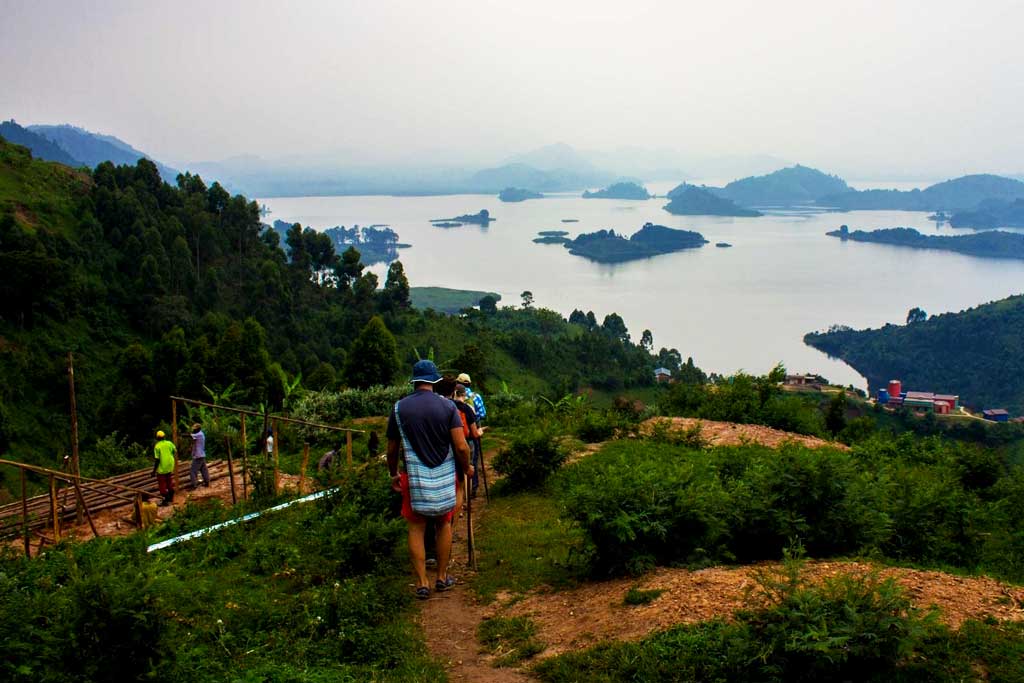Get on a coffee tour, Lake Mutanda & walk to Nkuringo section in Bwindi Impenetrable National Park. When you arrive in Kisoro, you will have your first cup of coffee at Gorilla Junction and then go for a coffee and Lake Mutanda tour around Bwindi. The walking safari guide will not only show you the coffee plantation but will take you through the whole process, from the plant to the actual cup of coffee.
You will certainly appreciate each cup more after you have seen all the hard work that goes into it.

After, you can be transferred to Lake Mutanda for a 2.5 hours boat canoe tour on the lake. Just sit back whilst the local fisherman paddles you across this amazingly beautiful lake in a traditional dugout canoe. You will admire the islands and the surrounding volcanoes that skirt the edge of the lake.
The last part of the hike takes you through communities, past farmers. You won’t hear the sound of vehicles or heavy machinery, just the hum and energy of village life. A truly special experience.
More About Bwindi Impenetrable National Park, Coffee Tour and Lake Mutanda
Bwindi Impenetrable National Park is found in southwestern Uganda on the edge of the western arm of the Great East African Rift Valley. That’s about 530km from Kampala, the capital of Uganda.
Bwindi Impenetrable National Park, which is famous for gorilla trekking safaris, is a UNESCO World Heritage site, occupying over 331 sqkm. The park is also famous for its rare species which include mountain gorillas (Gorilla beringei beringei).
Bwindi Impenetrable National Park also protects an estimated 400 mountain gorillas, that’s roughly half of the world’s population. This is because of the several habituated gorilla families such as the Oruzogo gorilla family, which can be tracked.
This biologically diverse region also provides shelter to a further 120 mammals, including several primate species such as baboons and chimpanzees, as well as elephants and antelopes. There are around 350 species of birds hosted in this forest, including 23 Albertine Rift endemics.
Bwindi was managed as a productive forest reserve since 1932. In 1991, the forest gained a national park status with the official name of ‘Bwindi Impenetrable National Park’. It is managed by the Uganda Wildlife Authority (UWA) as part of the Bwindi Mgahinga Conservation Trust/Area (BMCT/A).
